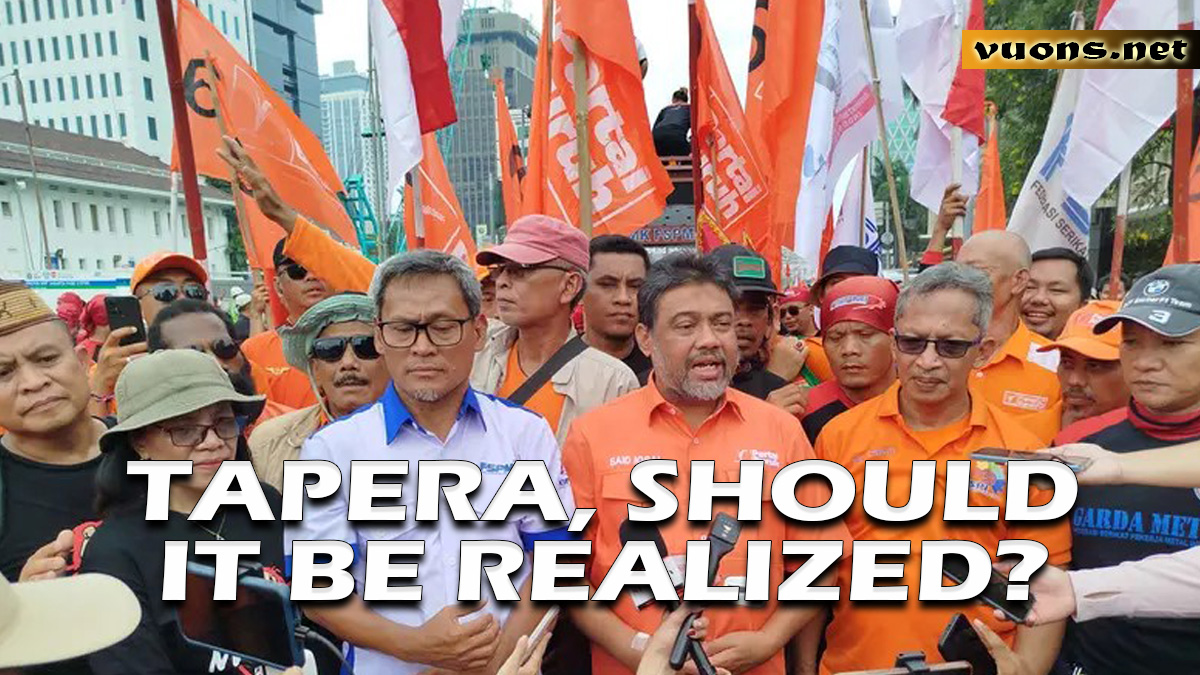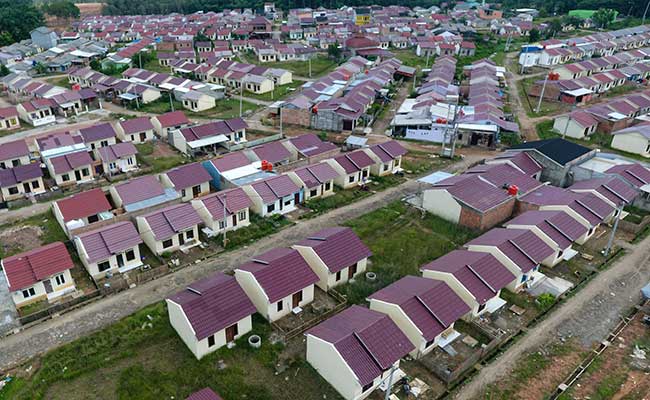TAPERA: A NEW POLICY WITH A LOT OF CONTROVERSY
Pros and Cons of Tapera: Perspectives from Various Groups
This program aims to provide more affordable housing solutions for low-income communities. However, not all parties agree with the proposed approach. The following are the views of several important groups regarding this policy.
Views of Society and Workers
For many workers, especially those on low incomes, Tapera seems like a glimmer of hope amidst the difficulty of access to decent housing. This program promises the opportunity to own a home with an affordable savings scheme. For example, a factory worker who is having difficulty saving for a down payment on a house now has a clearer and more structured path to achieving his dream of owning his own home.
However, quite a few are also worried about the potential decline in income that could occur. “With a mediocre income, cutting off some of your housing savings might make it difficult to meet your daily needs,” said Rahma, a worker in the informal sector. This concern is especially felt by those who are already struggling to meet basic needs.
Entrepreneur’s Perspective
From the entrepreneur’s side, the Tapera policy raises concerns regarding additional operational costs. Companies are required to contribute to employees’ housing savings, which can mean increased expenses. “We support the government’s efforts to provide adequate housing, but there needs to be a balance so that this policy does not burden the business sector, especially in the midst of global economic uncertainty,” said Hendra, a manufacturing business owner.
However, there are also those who see the positive potential of this policy. With residential stability, it is hoped that employee productivity can increase, which in the end will also benefit the company.
Review from Economic Experts
Economic experts provide a more in-depth analysis of the Tapera Bill. According to them, if managed well, Tapera could be an important instrument for overcoming the chronic housing problem in Indonesia. “This program can encourage growth in the housing and construction sector, create new jobs, and improve the overall welfare of society,” said Dr. Budi Santoso, an economist from a leading university.
However, experts also reminded the importance of transparency and accountability in managing Tapera funds. Without strict supervision, there is a risk of misuse of funds which could harm the people who should be the main beneficiaries.
Tapera’s Economic and Social Impact: In-depth Analysis
The Tapera (Public Housing Savings) Bill is an ambitious policy designed to increase low-income people’s access to adequate housing. However, like any major policy, Tapera invites heated debate regarding its economic impact and the social benefits it promises. In this article, we will analyze how the implementation of Tapera can affect various aspects of the economy and social welfare in Indonesia.
Economic Impact
Economically, Tapera has the potential to stimulate the property and construction sector in Indonesia. With increasing demand for affordable housing, the industry could experience significant growth. “The Tapera program can be a catalyst for investment in the housing sector, which in turn will create new jobs and encourage economic growth,” said Dr. Budi Santoso, economist from a leading university.
However, there are concerns that this policy could also increase costs for companies. Employers are required to contribute to Tapera funds for their employees, which could mean increased expenses. “We support the government’s efforts, but there needs to be a balance so that this policy does not burden the business sector, especially in the midst of global economic uncertainty,” said Hendra, a manufacturing business owner.
Social Benefits
From a social perspective, Tapera promises to improve the quality of life for low-income people. By having your own home, family stability and prosperity can increase. “A house is not only a place to live, but also a foundation for social and emotional well-being. With Tapera, it is hoped that more and more families can feel this security,” said Lestari, a social worker.
However, the effectiveness of this program is highly dependent on its implementation and management. There are concerns about how the funds will be managed and distributed. Transparency and accountability are the main keys so that the expected social benefits are actually realized. “Without strict supervision, there is a risk of misuse of funds which could harm the people who should be the main beneficiaries,” added Lestari.
Challenges and Solutions
One of the biggest challenges in implementing Tapera is ensuring that contributions from workers and employers do not become too heavy a burden. Fair and sustainable schemes need to be designed so that all parties feel they benefit. The government must also ensure that there is an effective monitoring mechanism to prevent corruption and misuse of funds.
On the other hand, education and outreach regarding Tapera is very important. Communities need to understand how they can benefit from this program, and companies need to know how to integrate Tapera’s contributions into their cost structures. With the right approach, this policy can be implemented effectively and provide broad benefits.
Tapera Implementation: Challenges and Opportunities
The Tapera (Public Housing Savings) Bill has attracted widespread attention in Indonesia, bringing new hope for more equitable access to housing. However, like other major policies, the implementation of Tapera cannot be separated from various challenges and opportunities. This article will explore these aspects, illustrating how these policies can be successful and the obstacles that need to be overcome.
Challenges in Implementing Tapera
- Administration and Fund Management
One of the biggest challenges is ensuring transparent and accountable management of Tapera funds. With the large scale of the program, there is a risk of misuse of funds if not closely monitored. “Transparency is the key to Tapera’s success. Without adequate supervision, funds could be misused, harming the people who should be the main beneficiaries,” said Dr. Budi Santoso, an economist. - Economic Burden for Entrepreneurs
Employers are required to contribute to the Tapera fund for their employees. This could be an additional burden, especially for small and medium-sized businesses that may already be struggling amid economic uncertainty. “We support the noble goals of Tapera, but there must be a balance so that this policy does not burden the business sector,” said Hendra, a manufacturing business owner. - Socialization and Education
Many workers and entrepreneurs still do not fully understand how Tapera will be implemented and the benefits they can get. Effective outreach and education is needed to ensure all parties understand the scheme and how it works. “Without good understanding, this program can be difficult to accept and implement successfully,” said Lestari, a social worker.
Opportunities Presented by Tapera
- Increase Housing Access
Tapera has great potential to increase low-income people’s access to adequate housing. With structured savings schemes, many families who previously could not afford to buy a home now have a clearer path to realizing their dreams. “This program could be a real solution to the housing problem in Indonesia,” said Rahma, a worker in the informal sector. - Encourage Economic Growth
With increasing demand for housing, the property and construction sectors are expected to grow, creating new jobs and stimulating the economy. “Tapera can be a catalyst for the growth of the property sector, providing a positive impact on the national economy,” added Dr. Budi Santoso. - Increasing Social Welfare
Having your own home is not just about a place to live, but also about family stability and well-being. With Tapera, it is hoped that many families will experience an improvement in their quality of life. “Home is the foundation for social and emotional well-being. This program can provide a sense of security and stability for many families,” said Lestari.
Conclusion
Implementing Tapera offers great challenges but also significant opportunities. The success of these policies depends largely on how these challenges are addressed and how opportunities are exploited. With transparent management, support from the business sector, as well as good education and outreach, Tapera can be an important solution to the housing problem in Indonesia. Challenges exist, but with the right approach, huge benefits for the economy and social welfare can be achieved.




